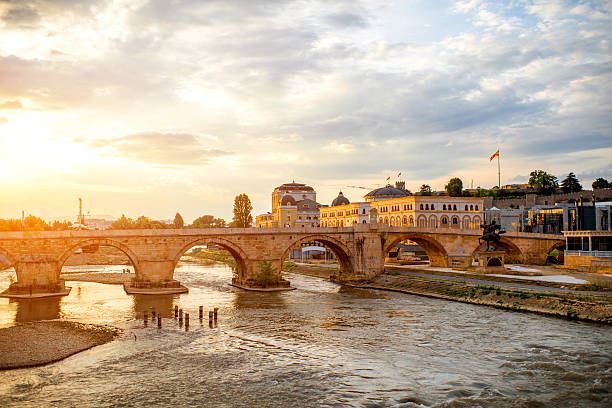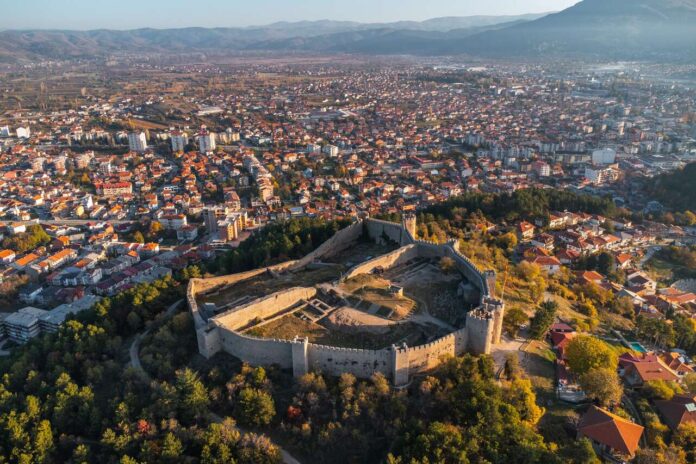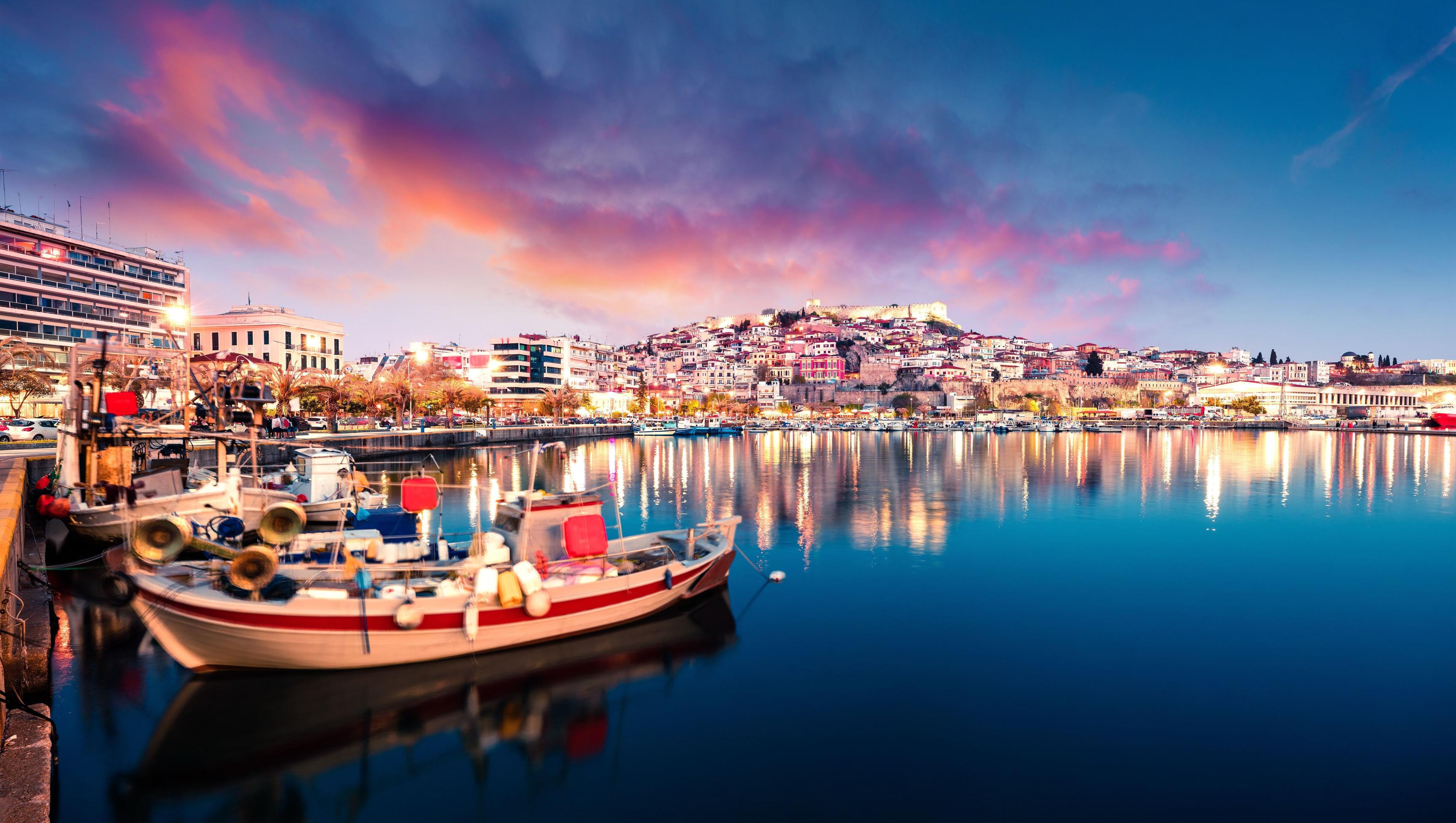Overview of the Republic of Macedonia
The Republic of Macedonia, officially referred to as North Macedonia, is a landlocked nation in Southeastern Europe. It shares borders with Albania, Kosovo, Serbia, Bulgaria, and Greece. Its strategic position serves as a hub for cultural and economic interactions in the region. The capital city, Skopje, acts as the epicenter of political, economic, and cultural activities.
Steeped in history, North Macedonia was part of the ancient kingdom ruled by Alexander the Great and later integrated into the Ottoman Empire and Yugoslavia. Since achieving independence in 1991, the nation has been making notable strides in economic development and global integration. Joining NATO in 2020 marked a significant milestone, and North Macedonia is currently a candidate for European Union membership.
Living Standards in North Macedonia
The standard of living in North Macedonia is moderate compared to Western European nations but is steadily improving as the economy continues to develop.
- Housing and Utilities
Housing is highly affordable, with rental costs significantly lower than those in Western Europe. Utilities, including electricity and water, are reasonably priced. However, rural areas occasionally face infrastructure challenges. - Employment and Income
The average monthly salary in North Macedonia is approximately €500. While income disparities exist between urban and rural areas, unemployment, especially among the youth, remains a pressing concern. The government is actively implementing measures to boost job creation. - Healthcare and Education
The public healthcare system is accessible but underfunded, prompting many residents to seek private medical care for specialized needs. Education is free at primary and secondary levels, while higher education remains affordable and increasingly modernized through international collaborations. - Quality of Life
North Macedonia’s breathtaking landscapes, including Ohrid Lake and the Shar Mountain range, offer ample recreational opportunities. Its rich cultural heritage, affordable living costs, and close-knit communities foster a balanced and fulfilling lifestyle.
Personal Taxation in North Macedonia
North Macedonia has adopted a straightforward and competitive taxation system to encourage economic participation.
- Flat Tax Rate
The country implements a flat personal income tax rate of 10%, applicable to salaries, business income, and other earnings. - Social Contributions
Employees contribute approximately 18% of their gross income to social security, covering pensions, healthcare, and unemployment benefits. Employers shoulder an additional 27% contribution. - Exemptions and Deductions
Limited tax relief is available for certain groups, such as low-income earners and individuals with disabilities. However, deductions are relatively narrow in scope.
Corporate Taxation in North Macedonia
The corporate tax regime in North Macedonia is designed to attract foreign investment and stimulate business growth.
- Corporate Income Tax
The corporate income tax is set at a competitive flat rate of 10%, one of the lowest in Europe. This makes North Macedonia a desirable destination for businesses seeking favorable tax conditions. - Incentives for Investors
The government provides tax breaks and other incentives for businesses investing in underdeveloped regions or sectors such as technology and export-oriented industries.
Key Industries Driving North Macedonia’s Economy
North Macedonia’s economy benefits from diverse industries leveraging its strategic location, skilled workforce, and natural resources:
- Agriculture
Agriculture plays a vital role, employing a significant portion of the population. Fertile valleys support the cultivation of fruits, vegetables, grains, and tobacco. Wine production is a standout feature, with North Macedonia gaining international recognition for its quality vineyards and wines. - Manufacturing
The manufacturing sector is a cornerstone of the economy, producing textiles, automotive components, and metal goods. The textile industry is a leading exporter, supplying products to major European markets. - Mining and Energy
Rich in natural resources, North Macedonia exports chromium, lead, zinc, and manganese. The energy sector, particularly hydropower and renewable energy, is expanding to meet domestic needs and reduce reliance on imports. - Tourism
Tourism is an emerging industry, capitalizing on the country’s natural beauty and cultural heritage. Attractions like the UNESCO-listed Ohrid Lake and the scenic Shar Mountains draw visitors for cultural, eco-tourism, and adventure activities. - Information Technology (IT)
The IT sector is growing rapidly, with North Macedonia becoming a hub for software development, outsourcing, and digital marketing, thanks to its young and tech-savvy workforce.
Inflation and Cost of Living in North Macedonia
- Inflation Trends
Inflation rates in North Macedonia are moderate, usually between 2% and 3% annually. However, global economic pressures and energy price fluctuations can influence the cost of living. - Cost of Living
The cost of living is considerably lower than in Western Europe, making North Macedonia appealing to expats and retirees.
- Housing: Monthly rent in urban areas like Skopje ranges from €200 to €400, while rural areas are more affordable.
- Utilities and Transportation: Utilities are reasonably priced, and public transport costs approximately €0.50 per trip.
- Food and Dining: Fresh produce is inexpensive, and dining out at local restaurants costs €5 to €10 per meal.
Taxes on Property, Services, and Sales
- Property Tax
Annual property taxes are calculated based on market value and vary by municipality. Rates typically range from 0.1% to 0.2%, keeping property ownership affordable. - Value Added Tax (VAT)
The standard VAT rate is 18%, applied to most goods and services. A reduced rate of 5% applies to essentials like food, medicine, and books. - Service Fees
Municipalities impose modest fees for public services, including waste management and water supply, contributing to infrastructure development.
Business Structures in North Macedonia
Entrepreneurs in North Macedonia can select from a variety of business entities tailored to suit diverse operational needs:
- Sole Proprietorship
A sole proprietorship is simple to set up and suitable for small-scale ventures. However, the owner is personally liable for all business debts, which could pose a risk in cases of financial difficulties. - Limited Liability Company (LLC)
The LLC is the most popular business structure in North Macedonia. It offers limited liability protection to its owners and requires a minimum capital investment of €5,000. This structure is particularly ideal for small and medium enterprises. - Joint Stock Company (JSC)
A JSC is designed for larger enterprises seeking to raise significant capital. It mandates a minimum capital of €25,000 and allows companies to issue shares to attract investors. - Branch Office
Foreign companies looking to operate in North Macedonia can establish a branch office. This setup does not create a separate legal entity, and the parent company assumes full liability for the branch’s operations. - General Partnership
In a general partnership, two or more individuals share business responsibilities, profits, and liabilities equally, making it ideal for collaborative enterprises.
Licensing Requirements for Businesses in North Macedonia
Establishing a business in North Macedonia requires acquiring specific licenses and permits depending on the industry:
- Business Registration
All businesses must register with the Central Register of the Republic of North Macedonia to obtain a unique company identification number, formalizing their legal existence. - Sector-Specific Permits
Certain sectors, such as healthcare, construction, and food services, demand additional regulatory approvals to ensure compliance with industry-specific standards. - VAT Registration
Businesses with an annual turnover exceeding €50,000 must register for Value Added Tax (VAT) with the Public Revenue Office. - Environmental Approvals
Companies whose activities impact the environment, such as those in manufacturing or mining, must secure environmental permits from the relevant authorities. - Labor and Safety Compliance
Employers must adhere to national labor laws and workplace safety regulations, ensuring proper conditions for their workforce.

Business Opportunities for Expats in North Macedonia
North Macedonia offers a fertile ground for expatriates aiming to establish or expand their business ventures:
- Cost-Effective Operations
Low labor costs, affordable utilities, and inexpensive real estate make North Macedonia a cost-efficient destination for startups and small businesses. - Strategic Geographical Position
Located in the heart of the Balkans, North Macedonia provides seamless access to European and regional markets, making it an advantageous hub for trade and logistics businesses. - Emerging Sectors
Expats can explore growth opportunities in expanding industries such as tourism, information technology, renewable energy, and agriculture, all supported by governmental initiatives. - Government Incentives
The government actively promotes foreign investment through tax breaks, financial grants, and simplified business registration processes, particularly for ventures in underdeveloped regions. - Free Economic Zones
Special economic zones in North Macedonia offer significant tax advantages, well-developed infrastructure, and logistical support for export-oriented enterprises.
Residency and Citizenship Pathways for Expats
North Macedonia provides multiple avenues for expatriates to gain residency and citizenship:
- Temporary Residency
Expats working, studying, or investing in North Macedonia can apply for temporary residency permits. After five years of uninterrupted legal residence, they become eligible for permanent residency. - Naturalization Process
Citizenship by naturalization can be obtained after eight years of legal residence. Applicants must demonstrate familiarity with the Macedonian language and culture as part of the application process. - Investment-Based Citizenship
North Macedonia offers a citizenship-by-investment program, granting citizenship to individuals who make significant economic contributions, such as investments in real estate or local businesses. - Dual Nationality
The country allows dual citizenship, enabling expats to retain their original nationality while enjoying the benefits of Macedonian citizenship.
Why Register a Business in North Macedonia
North Macedonia’s conducive business environment makes it an attractive destination for entrepreneurs and investors:
- Prime Location for Trade
Strategically situated in the Balkans, North Macedonia acts as a gateway to Europe, Asia, and the Middle East. Its connectivity to regional and international markets makes it a favored location for trade and logistics operations. - Low Taxation
With a flat corporate tax rate of 10%, North Macedonia offers one of the most favorable taxation systems in Europe. Personal income tax is similarly capped at 10%, benefiting both businesses and their employees. - Affordable Business Costs
The country boasts low operating costs, with affordable labor, utilities, and office spaces. This creates an enabling environment for businesses to maximize profitability. - Emerging Industries
Growing sectors such as tourism, IT, agriculture, and renewable energy present lucrative opportunities for entrepreneurs to establish ventures with minimal competition. - Government Support and Incentives
The government encourages entrepreneurship through grants, tax exemptions, and access to special economic zones equipped with essential infrastructure for business operations.
Steps to Register a Business in North Macedonia
Registering a company in North Macedonia is a streamlined process designed to promote entrepreneurship:
- Select a Business Structure
Determine the appropriate legal form for your enterprise. Options include:
- Sole Proprietorship for small businesses.
- Limited Liability Company (LLC) for small and medium enterprises.
- Joint Stock Company (JSC) for larger ventures seeking capital through shares.
- Branch Office for foreign companies.
- Secure a Business Name
Verify the availability of your desired business name with the Central Register and reserve it to avoid duplication. - Prepare Required Documents
Essential documents include:
- Articles of Association.
- Identification of founders or authorized representatives.
- Proof of initial capital deposit.
- Register the Business
Apply and accompanying documents to the Central Register of North Macedonia. Once approved, your company will receive a unique identification number. - Establish a Bank Account
Open a corporate bank account to manage your business’s financial operations and deposit the required initial capital. - Obtain Licenses and Permits
Depending on your industry, apply for any additional permits or licenses from relevant regulatory bodies. - Register for Taxation
Businesses exceeding €50,000 in annual turnover must register for VAT with the Public Revenue Office.
North Macedonia’s structured and transparent process makes it easy for both local and international entrepreneurs to start and grow their businesses.
Business Registration Costs in North Macedonia
Establishing a business in North Macedonia is cost-efficient, and appealing to entrepreneurs and investors alike. Here are the key expenses involved:
- Initial Capital Requirements
- Limited Liability Company (LLC): The minimum required capital for an LLC is €5,000, making it accessible for small and medium enterprises.
- Joint Stock Company (JSC): For larger businesses, a JSC requires a minimum capital of €25,000, suitable for ventures needing significant investment.
- Registration Fees
The cost of registering with the Central Register typically ranges from €50 to €100, depending on the business structure chosen. - Notary and Legal Fees
Legal assistance and document notarization cost between €100 and €500, depending on the complexity of the paperwork and the type of business entity. - Sector-Specific Licenses
Certain industries may require additional permits or licenses, costing anywhere from €50 to €300. - Banking Expenses
Setting up a corporate bank account may incur nominal fees, with depositing the initial capital being a mandatory step in the registration process.
Diplomatic and Economic Relations of North Macedonia
North Macedonia fosters strong diplomatic and trade relationships with neighboring and global nations, contributing to its growing economic footprint.
- European Union (EU)
As a candidate for EU membership, North Macedonia benefits from trade agreements and funding under EU pre-accession assistance programs. The government aligns policies with EU standards, boosting confidence among investors. - Balkan Neighbors
The country enjoys robust ties with regional neighbors, including Albania, Kosovo, Serbia, and Bulgaria. These partnerships promote regional trade and collaboration on key infrastructure and energy projects. - United States
The United States is a vital partner in North Macedonia’s democratic and economic progress. Through bilateral agreements and trade initiatives, the US encourages American businesses to invest in the region. - China and Other Global Partners
Collaborations with China, particularly under the Belt and Road Initiative, have led to significant investments in infrastructure and transportation. North Macedonia is also expanding trade relations with Middle Eastern and Asian countries. - Free Trade Agreements
As a member of the Central European Free Trade Agreement (CEFTA), North Macedonia enjoys reduced tariffs and enhanced trade opportunities within the region, fostering economic growth.
Additional Taxes in North Macedonia
Apart from corporate and personal income taxes, businesses and individuals in North Macedonia must account for other levies:
- Social Security Contributions
Employers and employees jointly contribute to the country’s social security system, which funds pensions, healthcare, and unemployment benefits. Employers contribute approximately 27%, while employees pay around 18% of their gross income. - Excise Taxes
Excise duties are levied on specific goods such as alcohol, tobacco, and fuel, serving as a significant source of government revenue. - Customs Duties
Imports from non-CEFTA countries are subject to customs duties. However, trade agreements often reduce or eliminate tariffs for specific goods, facilitating international trade.
Social Security Framework in North Macedonia
North Macedonia provides a structured social security system aimed at ensuring the welfare of its citizens and residents.
- Pensions and Unemployment Benefits
The pension system offers financial stability for retirees, based on contributions made during their working years. Unemployment benefits provide temporary financial relief for job seekers, ensuring a safety net during transitions. - Social Welfare Programs
Targeted government initiatives assist low-income families, individuals with disabilities, and other vulnerable groups. These programs aim to reduce poverty and promote social inclusion.
Climate and Safety in North Macedonia
North Macedonia combines a favorable climate with a stable security environment, making it a safe and appealing destination.
- Weather and Climate
The country experiences a continental climate, marked by distinct seasons:- Spring and Autumn: Mild temperatures create ideal conditions for outdoor activities.
- Summer: Hot and dry weather dominates, with temperatures often reaching up to 35°C, particularly in the south.
- Winter: Snowfall is common in mountainous regions, providing excellent opportunities for winter sports like skiing.
The diverse landscapes, from the picturesque Ohrid Lake to the Shar Mountains, offer recreational options year-round.
- Regional Safety and Stability
North Macedonia is considered one of the safer countries in the region, with low levels of violent crime. While petty crimes like pickpocketing can occur in urban centers, they are relatively rare. The government prioritizes public safety, and the country’s political stability has improved in recent years, creating a secure environment for residents and visitors.
Passport Strength of North Macedonia
The Macedonian passport reflects the country’s strong diplomatic ties and offers notable travel advantages.
- Global Access
As of 2024, the Macedonian passport grants visa-free or visa-on-arrival access to over 120 countries.- European Nations: Visa-free travel to countries like Turkey, Serbia, and Montenegro.
- Global Reach: Simplified entry to regions in Asia, the Middle East, and South America.
- Future Potential
While not yet an EU member, North Macedonia’s candidacy status signals potential future benefits, including broader travel privileges and greater opportunities for its citizens.
Educational and Economic Opportunities in North Macedonia
- Education
North Macedonia provides free primary and secondary education, ensuring widespread access to basic schooling. Higher education institutions, such as Saints Cyril and Methodius University, offer diverse programs in fields like science, arts, and technology. International academic exchange initiatives are expanding, preparing students for competitive global markets. - Economic Development
The economy is steadily growing, driven by key industries like agriculture, manufacturing, and tourism. Emerging sectors such as renewable energy and IT present lucrative opportunities for entrepreneurs and investors. - Quality of Life
North Macedonia’s low cost of living, affordable housing, and inexpensive utilities create a comfortable lifestyle for residents. Cities like Skopje and Bitola provide modern amenities, while rural areas offer a peaceful, community-driven atmosphere. - Cultural and Recreational Activities
The country’s rich cultural heritage, vibrant festivals, and outdoor recreational options, such as hiking and skiing, make it an attractive destination for both residents and tourists.
North Macedonia’s blend of affordability, strategic location, and government support positions it as a promising destination for business, education, and quality living.






